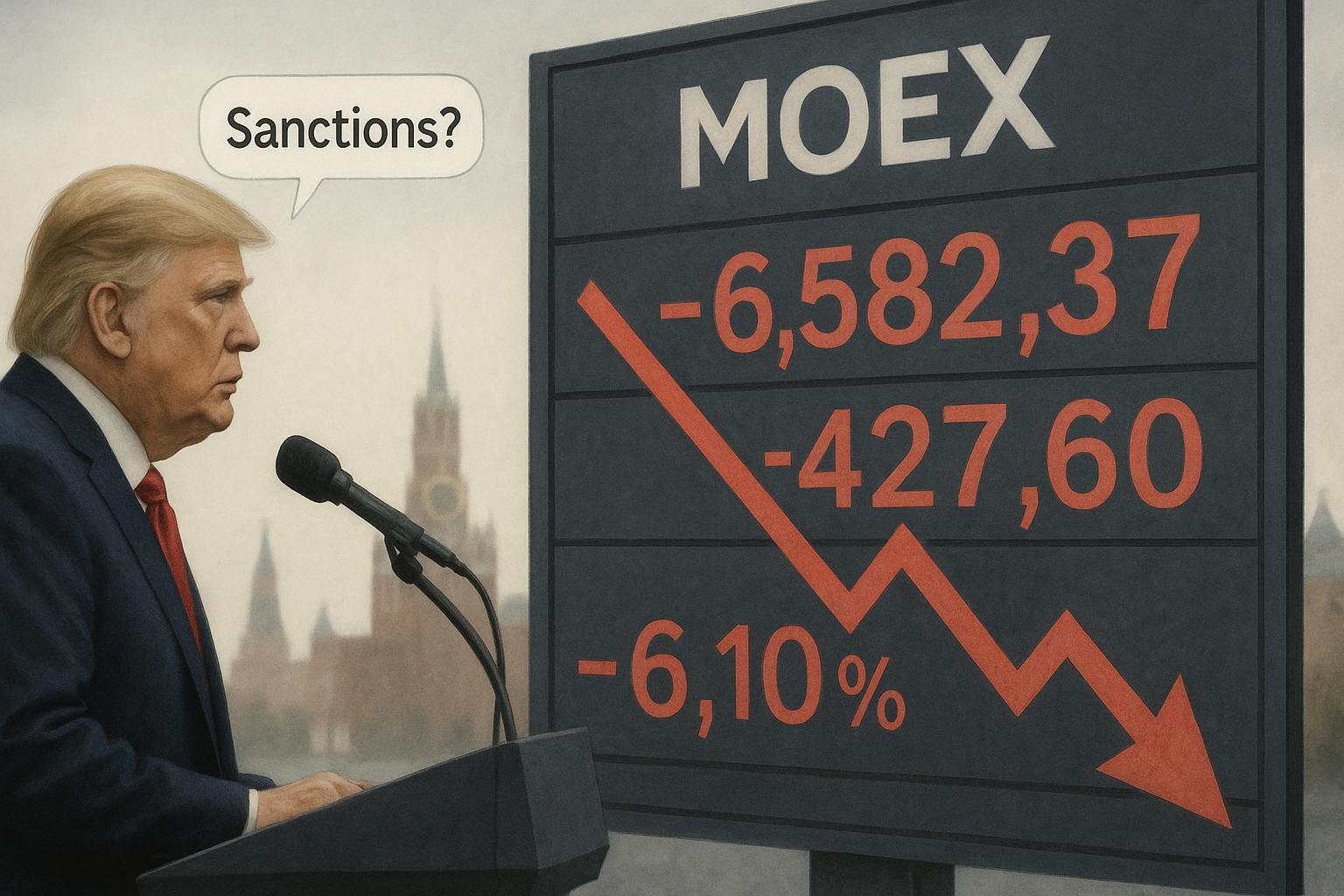The Russian stock market took a nosedive yesterday, shedding about $1.1 billion in value. The culprit? Nothing more than a casual comment from former President Donald Trump about potentially slapping Russia with tougher sanctions.
Look, I've covered market reactions to political statements for years, but there's something almost surreal about watching the Moscow Exchange Index plummet 1.51% within hours of Trump's offhand remark. It's as if trading algorithms have developed a special Trump-sensor that triggers sell orders the moment he strings certain words together.
Gazprom got absolutely hammered, dropping 3.5%. (Remember when energy companies were supposed to be safe havens during political turbulence? Those days are clearly gone.) Russian banking giants Sberbank and VTB weren't far behind, tumbling 1.5% and 2.4% respectively.
The situation spiraled further when rumors started swirling that the EU might disconnect another 20 Russian banks from SWIFT.
For those who don't spend their days obsessing over international banking systems like I do, getting cut off from SWIFT is the financial equivalent of having your phone, internet and mail service disconnected simultaneously. You technically still exist, but good luck telling anyone about it.
What fascinates me most about yesterday's market drama isn't just the numbers—though they're dramatic enough—but the psychology behind them. Markets don't wait for actual policy implementation; they flinch at shadows. This "sell first, ask questions later" mentality creates a strange power dynamic where presidential rhetoric can vaporize billions faster than most of us decide what to order for lunch.
I spoke with several Moscow-based analysts who confirmed this sentiment. "The market isn't reacting to sanctions," one told me, requesting anonymity because they weren't authorized to speak publicly. "It's reacting to the possibility of sanctions, which is an entirely different thing."
The casualties cut across Russia's economic landscape—Sovcomflot down 2.6%, Severstal dropping 2%, Aeroflot and Magnit both sliding 2.2%, and energy giant Rosneft falling 1.4%. Transportation, materials, energy... the market bloodbath didn't discriminate.
There's a bitter irony here. During his presidency, Trump sometimes dragged his feet on implementing Russia sanctions passed by Congress. Yet now his mere suggestion of tougher measures sends traders scrambling for the exits.
Will this dip prove temporary? History suggests these politically-induced market tremors often fade—unless they're followed by concrete action. But the SWIFT disconnection threat? That's not your garden-variety sanction. That's existential for Russian financial institutions.
The whole episode underscores something deeper about global financial architecture. Despite all the big talk about de-dollarization and the rise of alternative financial systems, when an American president—even a former one—clears his throat about sanctions, markets still tremble.
I've been tracking the relationship between political rhetoric and market movements since 2016, and if there's one constant, it's inconsistency. Some presidential statements barely register; others detonate like financial bombs.
Yesterday's market reaction wasn't just about Trump or Russia. It was a stark reminder of how perception and reality dance together in modern markets—sometimes in perfect harmony, sometimes stepping painfully on each other's toes.
And sometimes, apparently, a few presidential words can wipe out a billion dollars faster than you can say "market volatility."
